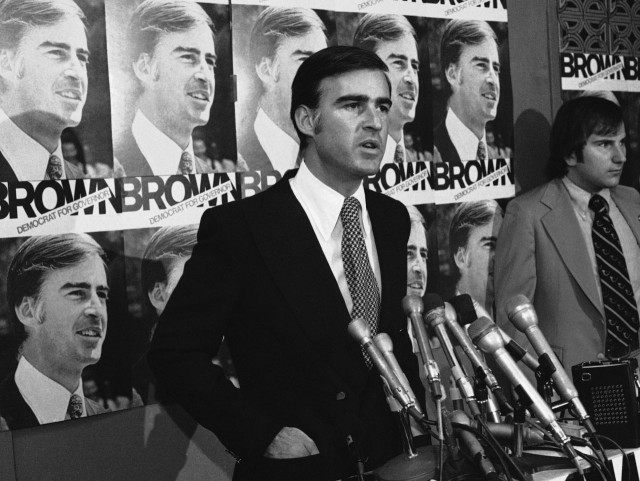California Gov. Jerry Brown has surrendered after claiming he would fight a $15 wage that would devastate California’s state budget by adding $4 billion in cost. He now supports the Democrat-controlled legislature’s $15-per-hour minimum wage — which won’t be effective until he is out of office.
Less than three years ago, Brown signed a bill to increase the state’s minimum wage to $10.
Breitbart News reported last week that California Secretary of State Alex Padilla had certified that the Service Employees International Union (SEIU) “Lift Up California” initiative for a $15 minimum wage by 2021 had gathered about 35,000 more valid California signatures than the 365,880 required under law, and had qualified to be listed on the November ballot.
In the face of intense lobbying by the state’s powerful labor unions ,and a Public Policy Institute of California poll last week that showing 81 percent of likely California voters saying that the state should raise the minimum wage, Brown seems to have bowed to the inevitable and negotiated a one-year delay until January 1, 2022 before the $15 minimum wage is effective for large businesses, with a 2-year delay for small business.
Brown’s deal means that he will have political cover by being out of office before the state’s budgets are hit by the new $15 minimum wage.
Brown also bowed to a union budget-busting concession that will give six days of paid sick time to home health care workers, according to the Sacramento Bee. Known as “In‑Home Supportive Services” (IHSS), the highly unionized program to provide personal caregivers to the impoverished elderly and disabled residents has a horrible reputation for loose oversight and bureaucratic bungling, which has allowed massive fraud in the ballooning multibillion-dollar state program, according to the Los Angeles Times.
The legislature pandered to unions last year by adding $270 million for home healthcare overtime. But a federal court in January 2015 vacated the Labor Department’s new rule requiring overtime pay under Fair Labor Standards Act.
The governor’s office refused the Bee’s request to confirm the agreement, but San Francisco State Senator Mark Leno (D-San Francisco) confirmed that a deal had been reached, adding that the governor will be able to pause minimum wage increases during recessions.
If the state legislature passes the deal in the next couple of weeks, the unions are expected to withdraw their “Lift Up California” initiative from the November ballot. Businesses, especially in the restaurant and hospitality industries, who had expected to spend millions to oppose the initiative, will suffer the losses directly instead.
Joel B. Pollak contributed to this report.

COMMENTS
Please let us know if you're having issues with commenting.